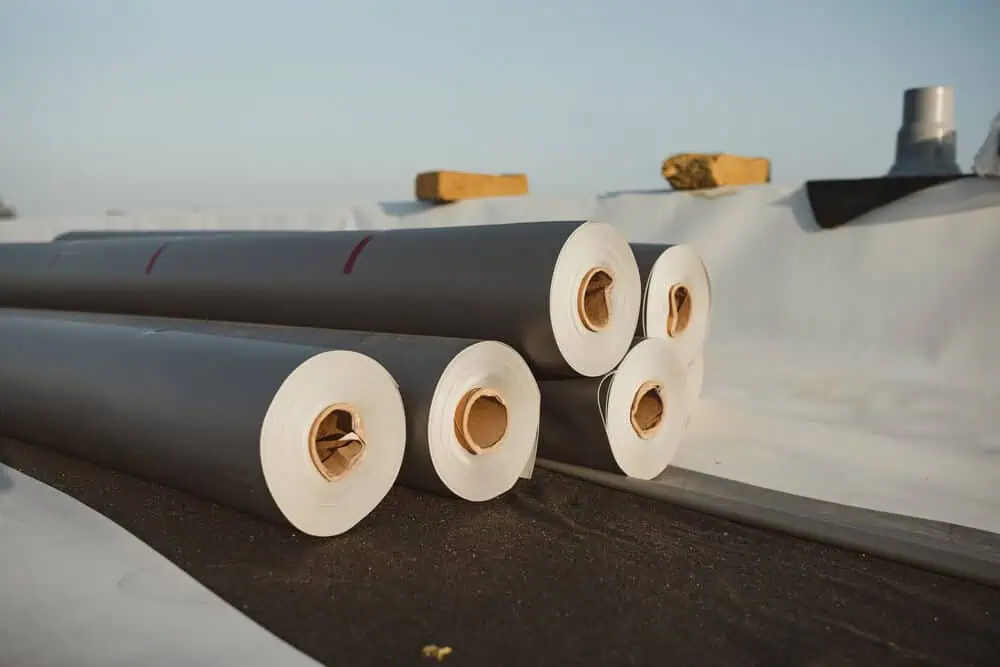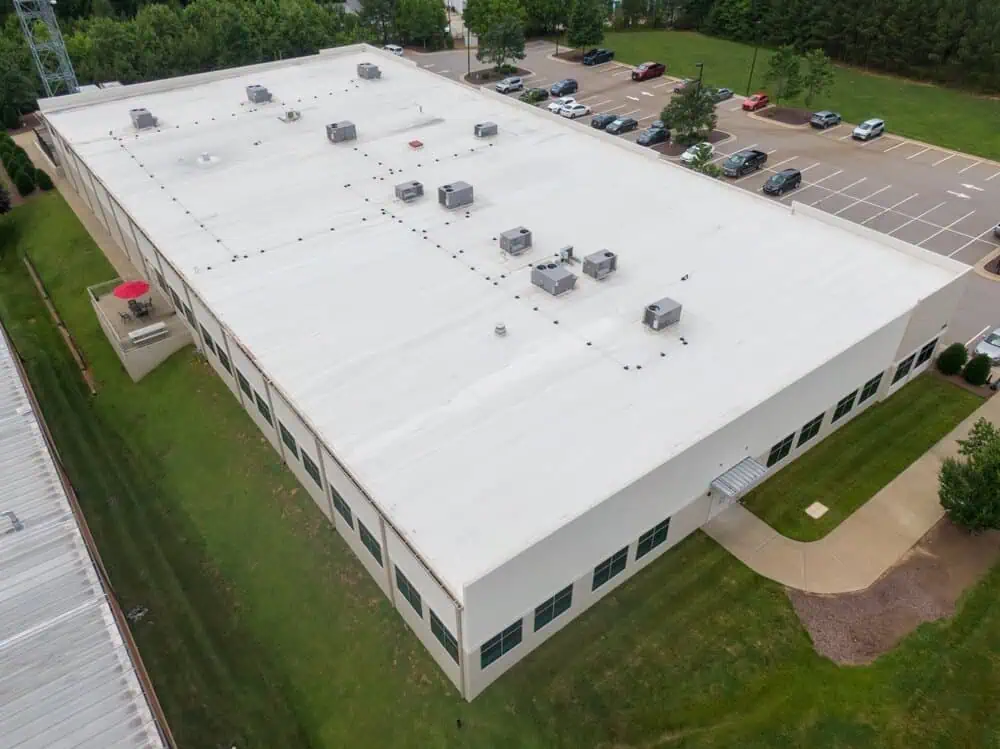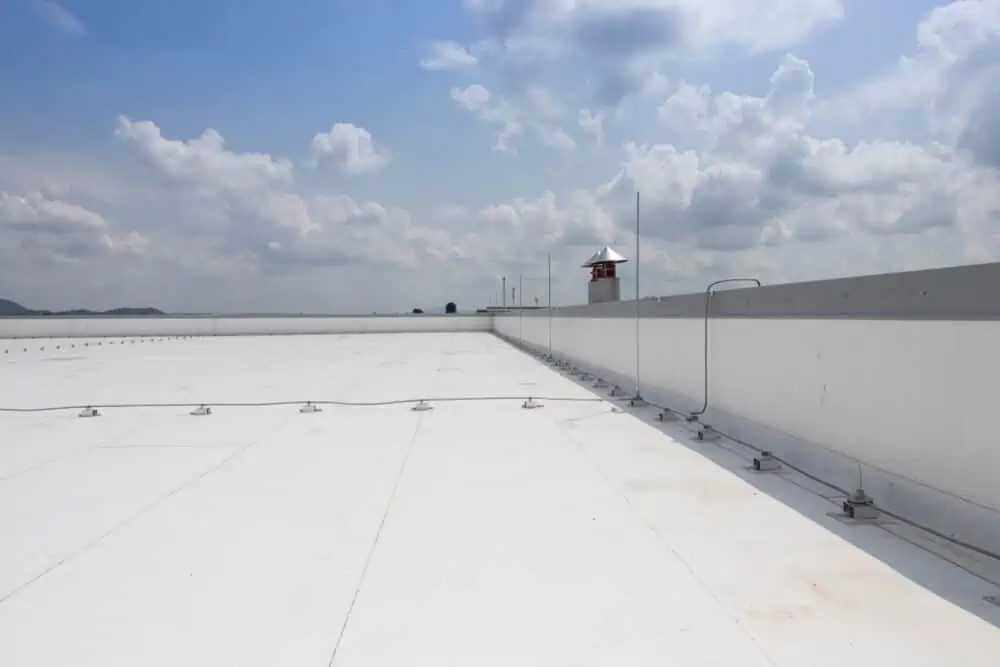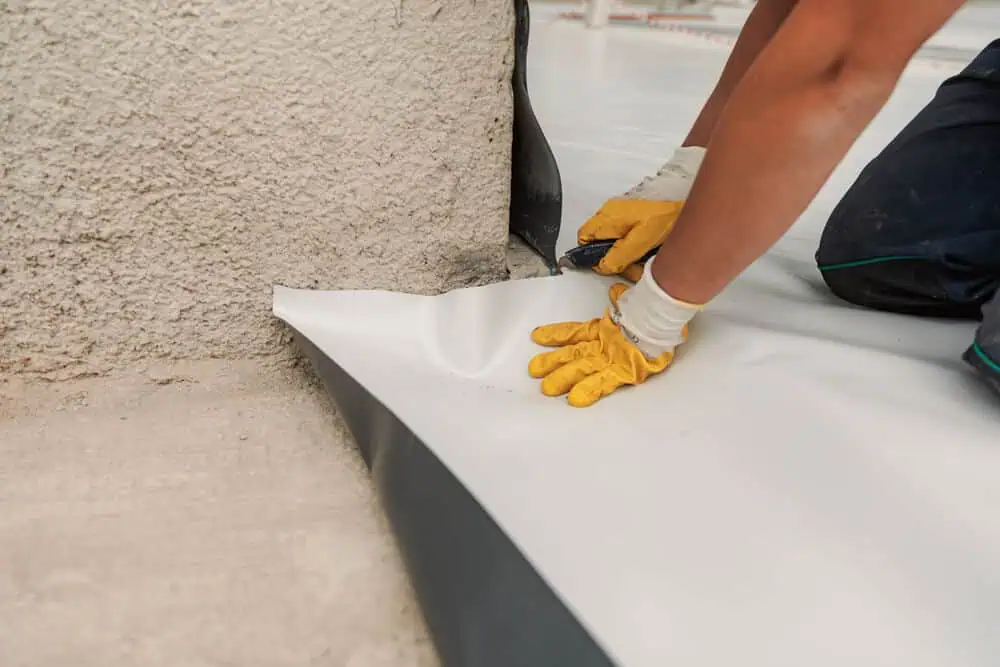Yes. PVC membranes are highly reflective, helping to reduce rooftop heat and lower energy bills.
PVC roofing is a single-ply membrane commonly used on flat and low-slope roofs. PVC stands for polyvinyl chloride roofing, and it’s known for its heat-welded seams, chemical resistance, and reflectivity, improving a building’s weather resistance and energy efficiency. A PVC roofing membrane delivers long-term performance with minimal maintenance, making it a proven solution in the commercial roofing industry.

EXCEPTIONAL MATERIALS & INSTALLATION
PVC roofing systems are trusted by commercial building owners for their strength, flexibility, chemical resistance, and proven performance. Here’s why it’s an ideal choice flat and low-slope roofs on commercial buildings:
WHAT WE OFFER
In order to get the most for your investment, it’s important that your PVC roofing project is handled correctly. Using our very own, highly trained crew, we ensure every PVC roofing installation is done to the highest standards, from material selection to heat-welded seams and insulation layout. We make sure your new roofing system meets your expectations and your commercial building’s needs.

From materials to installation, our work meets the highest industry standards, because we care. Using the best materials and installation practices by our own crews, we ensure our roofs are built to last in Texas heat and hail.
We want you to feel informed. You’ll always know what’s happening, when it’s happening, and what to expect next with your commercial roof replacement or repair. We aim for no surprises.


We thrive under pressure—resolving the unexpected with speed, creativity, and minimal impact to your operations. We rely on our 15+ years of industry experience and the latest best practices to come up with real solutions that last.
YOUR QUESTIONS ANSWERED
Yes. PVC membranes are highly reflective, helping to reduce rooftop heat and lower energy bills.
There are a few ways to install PVC membranes. They can be mechanically attached, fully adhered, or ballasted. Its seams are heat welded, forming a watertight bond stronger than adhesives.
Yes, PVC roofing is ideal for most low-slope roofs. This includes those on warehouses, institutional buildings, and commercial facilities.
Both PVC and TPO roofing systems perform well, but PVC offers better chemical resistance. The right material depends on your building’s specific needs.
As long as your PVC roof was installed correctly, your roofing system can last 20 to 30 years or more, depending on weather conditions and maintenance.
PVC stands for polyvinyl chloride. It’s a single-ply membrane that offers durability, flexibility, chemical resistance, and waterproof performance on commercial buildings.
Get expert solutions for your commercial roof today.